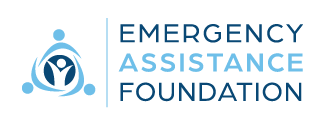
Think Outside the Box to Raise Funds for Relief Funds
November 4, 2015
How Does a Severe Winter Affect Relief Funds?
January 13, 2016November 18, 2015
One of the most appealing features of disaster and hardship relief funds is that a fund sponsor can help provide financial assistance to eligible charitable class members in need without the charitable class members being taxed on that assistance. However, this advantage is easy to lose, because the IRS heavily scrutinizes how grant decisions are made. The IRS’s main concern is that sponsored relief funds do not “impermissibly serv[e] the related employer” – in essence, that the fund is not a disguised benefit or compensation.
The IRS allows a great deal of latitude in how disaster and hardship relief funds operate, but the IRS prefers grant decisions to be made independently. In Publication 3833, the IRS states:
“[T]he recipients must be selected by an independent selection committee or adequate substitute procedures must be in place to ensure that any benefit to the employer is incidental and tenuous. The charity’s selection committee is independent if a majority of the members of the committee consists of persons who are not in a position to exercise substantial influence over the affairs of the employer.”
Put simply, this means that grant decisions must not benefit the fund sponsor. For example, if the recipients are selected by management or human resources, the IRS would probably not view this as being sufficiently independent. One way to ensure maximum independence is to partner with a public charity that has disaster and hardship relief expertise. Letting the charity make the grant decisions ensures a high degree of independence.
Tax advantages are not the only reason to favor independent grant decisions.
- Charitable class members are more comfortable applying and providing their personal information to a third-party administrator. Having a selection committee comprised of their supervisors is something many charitable class members are understandably uncomfortable with.
- Having a third-party make grant decisions for an organization's fund can be beneficial from a legal liability standpoint as well. With an independent third-party, there are no concerns about agent liability.
- Similarly, from a public relations perspective, disgruntled applicants will focus their attention on the independent administrator rather than on the sponsoring organization.
Combine these reasons with the tax advantages, and it is clear that having an independent body making grant decisions is the best way to operate your disaster and hardship relief fund.





